Anker Susan. Real Essays with Readings with 2009 MLA Update
Подождите немного. Документ загружается.


READINGS
Chapter 43 • Narration 747
and I were surrounded by sisters and deacons praying. It was very hot in
the church, and getting late now. Finally Westley said to me in a whis-
per: “God damn! I’m tired o’ sitting here. Let’s get up and be saved.”
So he got up and was saved.
7 Then I was left all alone on the mourners’ bench. My aunt came
and knelt at my knees and cried, while prayers and songs swirled all
around me in the little church. The whole congregation prayed for me
alone, in a mighty wail of moans and voices. And I kept waiting serenely
for Jesus, waiting, waiting — but he didn’t come. I wanted to see him,
but nothing happened to me. Nothing! I wanted something to happen
to me, but nothing happened.
8 I heard the songs and the minister saying: “Why don’t you come?
My dear child, why don’t you come to Jesus? Jesus is waiting for you.
He wants you. Why don’t you come? Sister Reed, what is this child’s
name?”
9 “Langston,” my aunt sobbed.
10 “Langston, why don’t you come? Why don’t you come and be
saved? Oh, Lamb of God! Why don’t you come?”
11 Now it was really getting late. I began to be ashamed of myself,
holding everything up so long. I began to wonder what God thought
about Westley, who certainly hadn’t seen Jesus either, but who was now
sitting proudly on the platform, swinging his knickerbockered
2
legs and
grinning down at me, surrounded by deacons and old women on their
knees praying. God had not struck Westley dead for taking his name in
vain or for lying in the temple. So I decided that maybe to save further
trouble, I’d better lie, too, and say that Jesus had come, and get up and
be saved.
12 So I got up.
13 Suddenly the whole room broke into a sea of shouting, as they saw
me rise. Waves of rejoicing swept the place. Women leaped in the air.
My aunt threw her arms around me. The minister took me by the hand
and led me to the platform.
14 When things quieted down, in a hushed silence, punctuated by a
few ecstatic “Amens,” all the new young lambs were blessed in the
name of God. Then joyous singing fi lled the room.
15 That night, for the last time in my life but one — for I was a big boy
twelve years old — I cried. I cried, in bed alone, and couldn’t stop. I
buried my head under the quilts, but my aunt heard me. She woke up
and told my uncle I was crying because the Holy Ghost had come into
my life, and because I had seen Jesus. But I was really crying because I
PAUSE: What do
you think Hughes
might do next?
PAUSE: Why did
Hughes get up to
be saved?
2
knickerbockered: wearing a pair of knee-length pants popular for boys in the
early twentieth century
PAUSE: Summarize
Hughes’s feelings.
ANK_47574_44_ch43_pp745-754 r4 ko.indd 747ANK_47574_44_ch43_pp745-754 r4 ko.indd 747 10/29/08 10:27:30 AM10/29/08 10:27:30 AM

READINGS
748 Part Eight • Readings for Writers
couldn’t bear to tell her that I had lied, that I had deceived everybody in
the church, and I hadn’t seen Jesus, and that now I didn’t believe there
was a Jesus any more, since he didn’t come to help me.
SUMMARIZE AND RESPOND
In your reading journal or elsewhere, summarize the main point of “Salva-
tion.” Then, go back and check off support for this main idea. Next, write a
brief summary (three to fi ve sentences) of the essay. Finally, jot down your
initial response to the essay. What do you think Hughes wanted to communi-
cate to readers by relating this story from his youth? What did you learn about
Hughes as a young person?
CHECK YOUR COMPREHENSION
1. Which of the following would be the best alternative title for this essay?
a. “Auntie Reed’s Church”
b. “The Power of Prayer”
c. “Waiting for Jesus”
d. “Westley and Me”
2. The main idea of this essay is that
a. most religious people are hypocrites.
b. a good preacher can stir a congregation to be saved.
c. Hughes had a very religious upbringing that affected him throughout
his lifetime.
d. Hughes lost his faith because he didn’t see Jesus when he pretended
to be saved.
3. According to Hughes, his aunt
a. deeply wanted him to be saved.
b. raised him for most of his childhood.
c. was herself saved when she was twelve years old.
d. knew why Hughes was really crying after the revival meeting.
4. If you are unfamiliar with the following words, use a dictionary to check
their meanings: escorted (para. 1); dire (3); gnarled (4); congregation,
serenely (7); deacons (11); deceived (15).
ANK_47574_44_ch43_pp745-754 r4 ko.indd 748ANK_47574_44_ch43_pp745-754 r4 ko.indd 748 10/29/08 10:27:30 AM10/29/08 10:27:30 AM
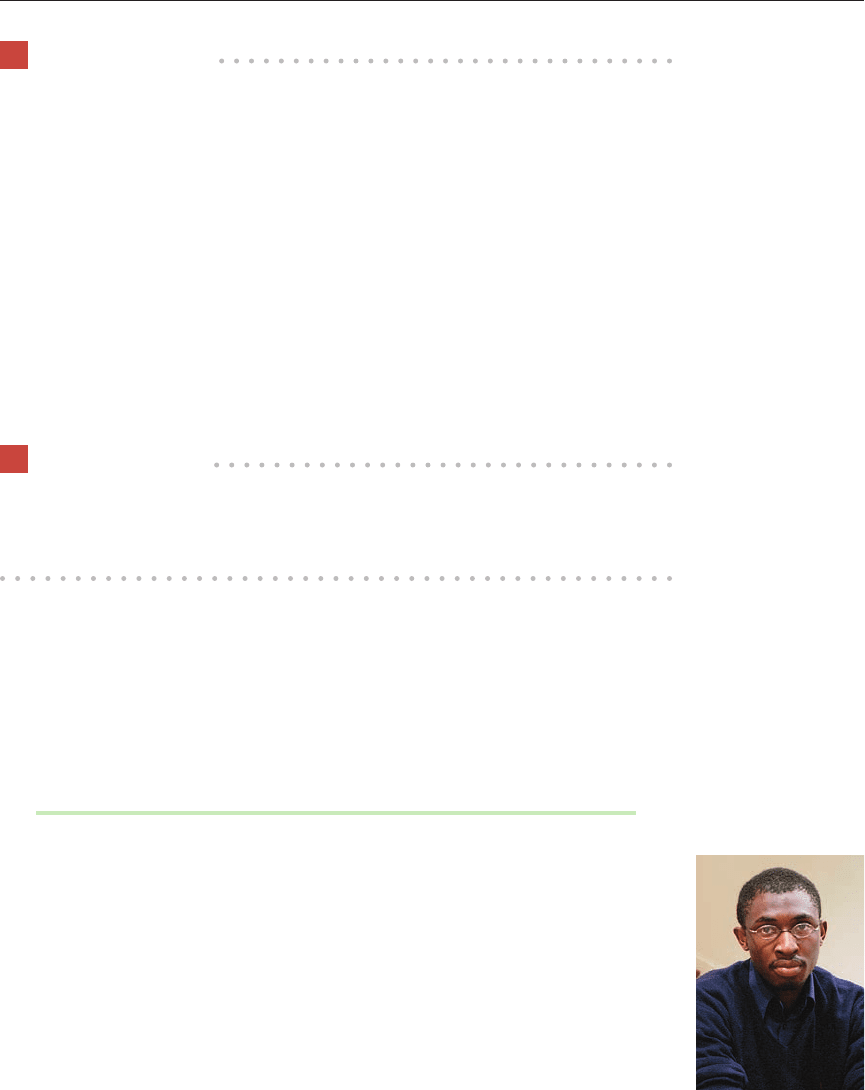
READINGS
Chapter 43 • Narration 749
READ CRITICALLY
1. How can you tell that Hughes truly wanted to be “brought to Christ”
(para. 1)?
2. Why did Hughes fi nally join the other children who had been “saved”?
3. What does the fact that Hughes cried after the revival service tell you
about him?
4. What is the purpose of the exclamation points after the fi rst three sen-
tences of paragraph 2?
5. Note where Hughes uses direct quotation in the essay. What is the effect
of these quotations?
WRITE AN ESSAY
Write an essay about a time in your youth when you desperately wanted to
experience or achieve something but failed to do so. In addition to narrating
the events that occurred, share the thoughts and feelings you had at the time.
Uzodinma Iweala
A Close Encounter
Born in Washington, D.C., in 1982 to Nigerian parents serving in the
diplomatic corps, Uzodinma Iweala spent most of his childhood in
the United States and attended Harvard College, where he received a
number of honors, including the Hoopes Prize for outstanding under-
graduate thesis. Shortly after graduating, Iweala published the novel
Beast of No Nation (2005), for which Granta magazine named him
one of America’s twenty best young novelists. In an interview with
Barnes & Noble about his writing process, Iweala said, “Well, fi rst I write
everything by hand. . . . I then type up all I’ve written, print it out, and
completely rewrite between the lines. When I’m fi nally ready to revise
to a fi nal draft, it becomes an affair involving colored pens, high-
lighters, stickies, and sometimes even scissors. I also like to read what
ANK_47574_44_ch43_pp745-754 r4 ko.indd 749ANK_47574_44_ch43_pp745-754 r4 ko.indd 749 10/29/08 10:27:30 AM10/29/08 10:27:30 AM

READINGS
750 Part Eight • Readings for Writers
I’ve written aloud to people” (www.barnesandnoble.com/writers/
writerdetails.asp?cid=1458920). Iweala is currently a student at Colum-
bia University.
“A Close Encounter” fi rst appeared as a “Lives” column in the New
York Times Magazine in November 2005.
GUIDING QUESTION
Why does Iweala feel out of place in Nigeria?
1 I return to Nigeria after graduating from college. I have been to Abuja,
the capital, a couple of times, but that was before my mother was
appointed minister of fi nance.
2 Two weeks into my stay, on a rare occasion when my mother has
time to chat, I tell her that I’m bored. Her response: “Here are the car
keys. Go and buy some fruit.” Overjoyed, I jump into the car, salute the
heavily armed security at the gate and speed off in search of — fruit.
3 The young boy sees me, or rather he sees the car fi rst — a silver
BMW — and quickly springs up from his spot under a small tree, eager
to sell his bunches of bananas and bottles of roasted peanuts. His dingy
shirt hangs low over too-short shorts. His sucked-in cheeks and puck-
ered lips suggest that although he appears to be about twelve, he already
knows the sourness of life. By the time I stop the car, he is at the pas-
senger door, grunting: “Banana 300 naira (roughly $2). Groundnut 200
naira. Sah!” I look skeptically at his black-striped bananas and bargain
him down to 200 total for the fruit and nuts. When he agrees, I reach
for my wallet and hand him a crisp 500 naira note. He doesn’t have
change, so I tell him not to worry. He is grateful and smiles a row of
perfect teeth.
4 When, two weeks later, I see this same boy, I am more aware of
my position in Nigerian society. Security people at the house have told
me: “You are the son of a minister! Kai! You should enjoy this coun-
try!” But it’s hard to fi nd enjoyment in a place where it’s not that rare
to see a little boy who should be in school standing on the corner selling
fruit in the intense heat. My parents have raised me and my three sib-
lings to be aware of the privilege we have been afforded and the respon-
sibility it brings. “To whom much is given . . .” my grandfather always
says.
1
And I have been given much, from education at the best schools
in the United States to this car and its twelve speakers, which have
changed the way I listen to music. But I worry about what is expected
of me.
PAUSE: Underline
details in this para-
graph that suggest
the economic dif-
ferences between
Iweala and the boy
selling bananas
and nuts.
PAUSE: Why might
Iweala be con-
cerned about what
is expected of him?
1
“To whom much is given . . .”: a passage from Luke 12:8 in the Christian Bible.
The quotation continues with “of him much shall be required.”
ANK_47574_44_ch43_pp745-754 r4 ko.indd 750ANK_47574_44_ch43_pp745-754 r4 ko.indd 750 10/29/08 10:27:31 AM10/29/08 10:27:31 AM

READINGS
Chapter 43 • Narration 751
5 I pull over and wind down my window. He wears the same shirt and
shorts and has a bunch of bananas and a bottle of peanuts ready. I wave
them away. “What’s up?” I ask him. He answers in broken English: “I
dey oh. But I no get money to buy book for school.” I reach into my
wallet and pull out two fresh 500 naira notes. “Will this help?” I ask.
He looks around nervously before sticking his hand into the car to take
the bills. One thousand naira is a lot of money to someone whose family
probably makes about 50,000 naira ($380) or less each year. “Thank
you, sah,” he says. “Thank you very much, oh!”
6 Later, I say to my mother: “That’s the way it works? He doesn’t
have any money, so I dash him some. Trickle-down economics, right?”
2
My mother winces when anyone speaks of the slow progress of the eco-
nomic reforms. “No, I’m trying to better his situation fi rst,” she says.
The next morning, the Secret Service offi cers caution me, “Sometimes
in this place, when you give a little, people think you’re a fountain of
opportunity.”
3
7 It’s true that people will take advantage of you in Nigeria, but this
happens everywhere in the world. I wonder if my little friend actually
used the money for schoolbooks. What if he’s a fraud? And then I won-
der about my own motives. Did I give to alleviate my own guilt? Am I
using him? Later, I realize that I don’t know his name or the least bit
about him nor did I think to ask.
8 Over the next six months, I am busy working in a refugee camp in
northern Nigeria, biking across France and Spain and writing. Some-
time after I return, I go for a drive, and I see the boy standing on the
road next to a man who sells exotic birds. He jumps up and down to get
my attention and has a big smile ready when I roll down the window.
9 “Oga sah!” he says. “Long time.”
10 “Are you in school now?” I ask.
11 He nods.
12 “That’s good,” I say. A silence falls as we look at each other, and then
I realize what he wants. “Here,” I hold out a 500 naira note. “Take this.”
13 He shakes his head vigorously and steps back as if offended. “What’s
wrong?” I ask. “It’s a gift.”
14 He shakes his head again and brings his hand from behind his back.
His face glistens with sweat. He drops a bunch of bananas and a bottle
of peanuts in the front seat before he says, “I’ve been waiting to give
these to you.”
2
trickle-down economics: an economic theory that was favored in the 1980s by
the administration of President Ronald Reagan. The theory claimed that tax cuts for
the wealthy would encourage them to spend more money, which then would “trickle
down” to small businesses and average wage earners.
3
fountain of opportunity: someone or something that can supply endless new
opportunities (in this context, more money)
PAUSE: How would
you summarize the
feelings that Iweala
expresses in this
paragraph?
PAUSE: Why might
the boy refuse
Iweala’s money?
ANK_47574_44_ch43_pp745-754 r4 ko.indd 751ANK_47574_44_ch43_pp745-754 r4 ko.indd 751 10/29/08 10:27:31 AM10/29/08 10:27:31 AM
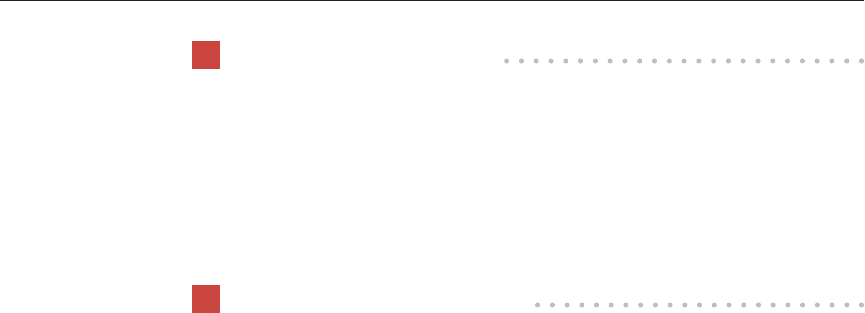
READINGS
752 Part Eight • Readings for Writers
SUMMARIZE AND RESPOND
In your reading journal or elsewhere, summarize the main point of “A Close
Encounter.” Then, go back and check off support for this main idea. Next,
write a brief summary (three to fi ve sentences) of the essay. Finally, jot down
your initial response to the reading. What impression of Iweala do you come
away with? Of the boy selling bananas and nuts? What does their “close
encounter” make you think about?
CHECK YOUR COMPREHENSION
1. Which of the following would be the best alternative title for this essay?
a. “The Value of Money”
b. “A Nigerian Politician’s Son”
c. “Connecting across the Nigerian Economic Divide”
d. “Nigeria: A Land in Transition”
2. What is the main idea of this essay?
a. The author wants to give readers a sense of the complicated nature of
his relation to others in Nigeria.
b. The author wants readers to share his feeling that economic inequal-
ity in Nigeria is the fault of politicians.
c. The author hopes to show readers that he and his family deserve
their privileged status because they are better educated than most
Nigerians.
d. The author wishes to convince readers that those who are privileged
should share with others less fortunate.
3. Iweala’s personal confl ict stems partly from the fact that
a. his mother’s position rarely allows her time to chat with him.
b. he was cheated by the boy selling bananas and nuts.
c. people in Nigeria take advantage of others more often than Ameri-
cans do.
d. his family’s high income gives him a privileged position in his country.
4. If you are unfamiliar with the following words, use a dictionary to check
their meanings: dingy (para. 3); skeptically (3); afforded (4); winces (6);
alleviate (7).
ANK_47574_44_ch43_pp745-754 r4 ko.indd 752ANK_47574_44_ch43_pp745-754 r4 ko.indd 752 10/29/08 10:27:31 AM10/29/08 10:27:31 AM

READINGS
Chapter 43 • Narration 753
READ CRITICALLY
1. What is Iweala’s attitude toward the boy he writes about? Point to specifi c
passages in the article that support your interpretation.
2. What impression of the writer do you take away from this reading? What
words would you use to describe him? Point to specifi c parts of the essay
that create this impression for you.
3. Mark the transitions that Iweala uses in the essay to show the passage of
time. How effective do you fi nd his use of transitions?
4. Note Iweala’s use of direct quotations. What do these contribute to his
story?
5. In paragraph 4, Iweala writes that he worries about “what is expected of
me.” What does he mean? How do you think he should act, given the
responsibility that he feels his privilege brings?
WRITE AN ESSAY
Write an essay about a time when you experienced a “close encounter” with
another person across lines of class, race, culture, or other basic differences.
How did you respond to those differences? Were you able to resolve them?
Like Iweala, you should allow readers to see into your own thoughts regarding
the encounter.
Narration: Linked Readings
THE PRESSURE TO CONFORM
Each of the following readings focuses on various aspects of the pressures
people feel to conform:
Langston Hughes, “Salvation” (this chapter, p. 745)
Kathleen Vail, “Words That Wound” (Chapter 44, p. 759)
Malcolm X, “My First Conk” (Chapter 46, p. 776)
Read the selections, and draw from at least one in addition to “Salvation” to
write an essay titled “The Pressure to Conform in Our Society.” You can refer
to your own experience, but make sure to use material from the essays as well.
ANK_47574_44_ch43_pp745-754 r4 ko.indd 753ANK_47574_44_ch43_pp745-754 r4 ko.indd 753 10/29/08 10:27:32 AM10/29/08 10:27:32 AM
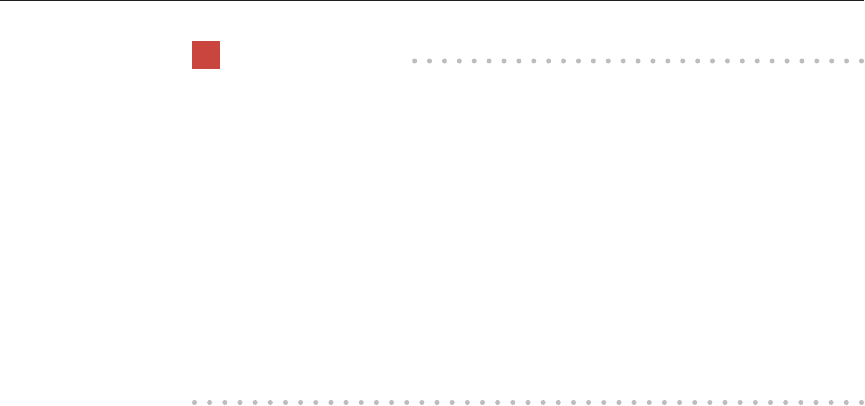
READINGS
754 Part Eight • Readings for Writers
FEELING FOREIGN
Each of the following readings focuses on various aspects of feeling foreign or,
in Mukherjee’s essay, how people from other countries adapt to a new one.
Uzodinma Iweala, “A Close Encounter” (this chapter, p. 749)
Alex Espinoza, “An American in Mexico” (Chapter 45, p. 766)
Bharati Mukherjee, “Two Ways to Belong in America” (Chapter 49,
p. 822)
Read the selections, and draw from at least one in addition to “A Close
Encounter” to write an essay titled “Feeling Foreign.” You can use the term
foreign in the sense of being either from another country or in a new situation
(such as starting at a new job or a new school).
ANK_47574_44_ch43_pp745-754 r4 ko.indd 754ANK_47574_44_ch43_pp745-754 r4 ko.indd 754 10/29/08 10:27:32 AM10/29/08 10:27:32 AM
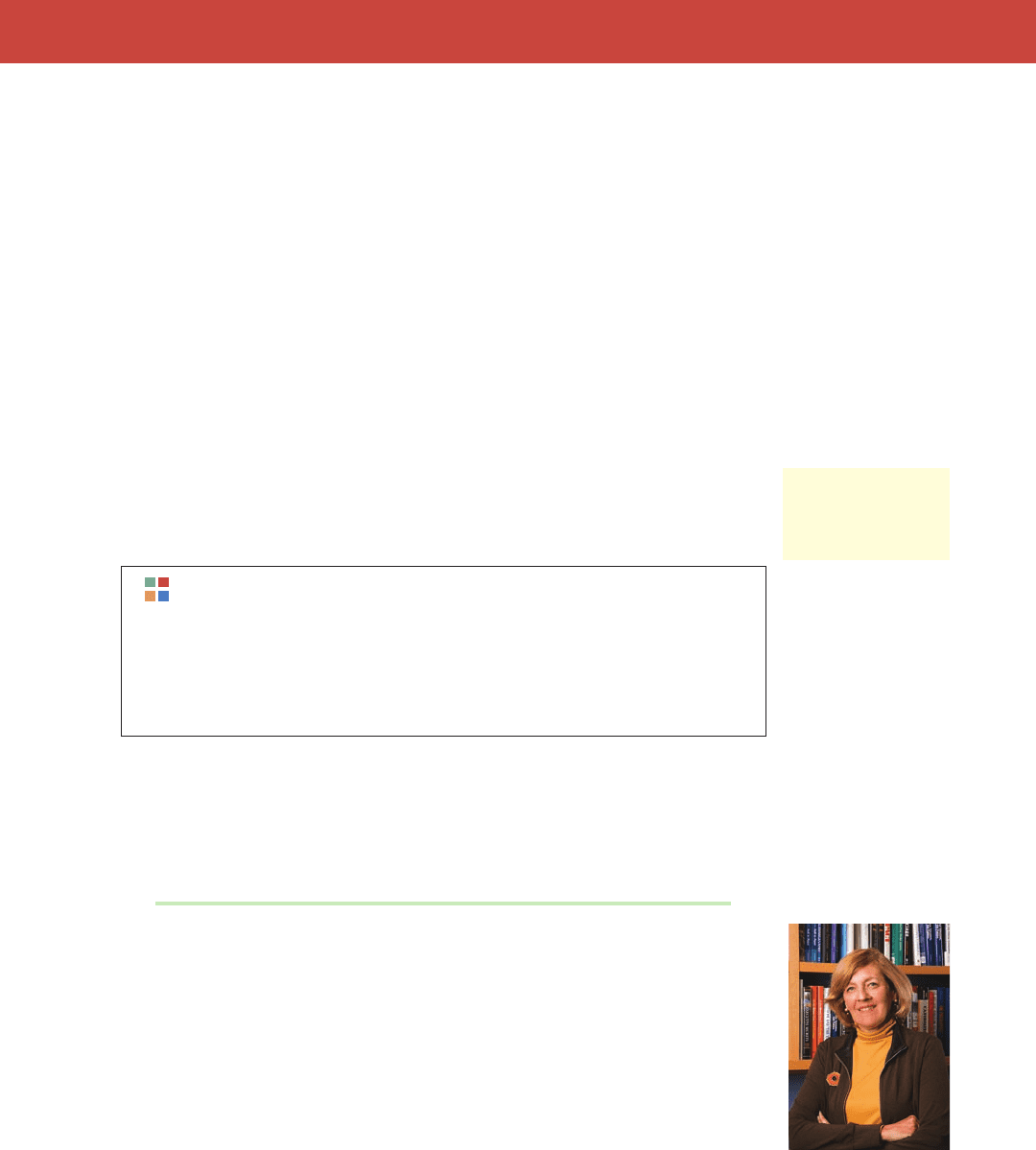
755
44
Illustration
Each essay in this chapter uses illustration to get its main point across. As
you read these essays, consider how they achieve the four basics of good
illustration that are listed below and discussed in Chapter 11 of this book.
FOUR BASICS OF GOOD ILLUSTRATION
1.
It has a point to illustrate.
2. It gives specifi c examples to show, explain, or prove the point.
3. It gives details to support these examples.
4. It uses enough examples to get the writer’s point across.
Ellen Goodman
Nightmare of Feature Creep
A native of Newton, Massachusetts, Ellen Goodman (b. 1941) earned
her bachelor’s degree from Radcliffe College in 1963. She began her
career in journalism as a researcher at Newsweek magazine at a time
when few women became news writers and later was a reporter for the
Detroit Free Press. She began writing a column for the Boston Globe
in 1967 that went into syndication in 1976 and now appears on the
op-ed page in over four hundred newspapers nationwide. Goodman
has published six collections of her columns and two other works of
nonfi ction — Turning Points (1979), about changing women’s roles, and
I Know Just What You Mean: The Power of Friendship in Women’s Lives
(2000). Among many awards, Goodman received the Pulitzer Prize for
Commentary in 1980.
■ IDEA JOURNAL
Write about a time
that you were bullied
or hurt by what some-
one said about you.
ANK_47574_45_ch44_pp755-765 r3 ko.indd 755ANK_47574_45_ch44_pp755-765 r3 ko.indd 755 10/29/08 10:27:57 AM10/29/08 10:27:57 AM
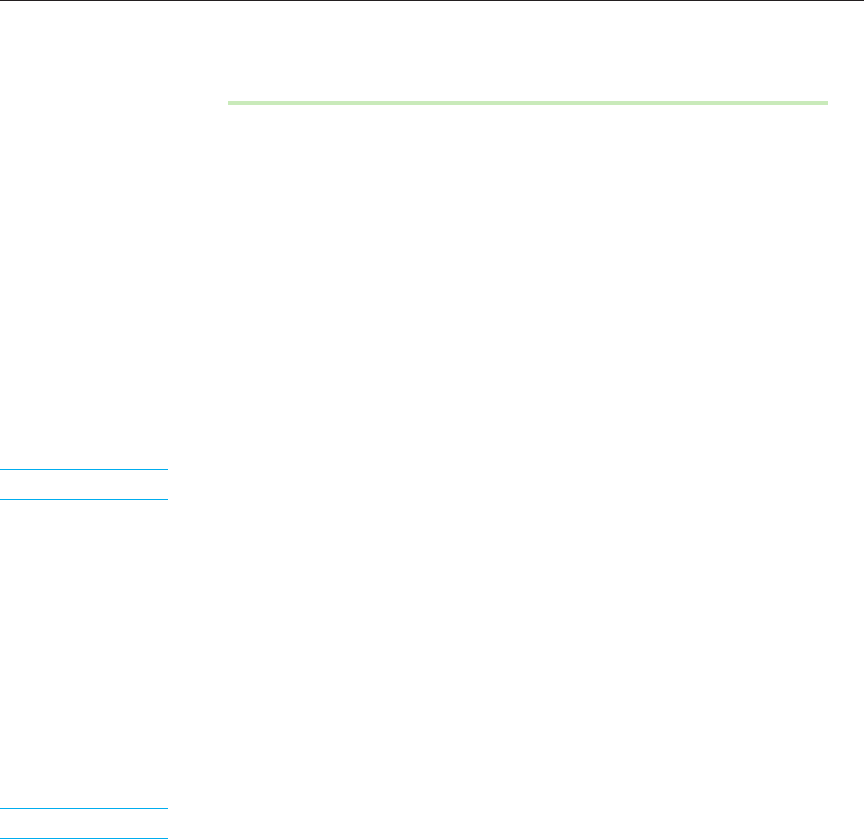
READINGS
756 Part Eight • Readings for Writers
Goodman is often praised for her directness, clarity, and sincerity.
The following column from 2006 also reveals Goodman’s witty side.
GUIDING QUESTION
What does the toothbrush that Goodman describes symbolize to her?
1 The origin of this species of rant was a toothbrush. A new toothbrush.
A new toothbrush that came with an instructional DVD. The user of
this advanced piece of dental equipment had been brushing his teeth lo
these many years without any educational aids at all. But now he was
the proud owner of an “IntelliClean System” equipped with packets of
paste to be downloaded into the toothbrush’s hard drive.
2 The good news is that his toothbrush — excuse me, his cleaning
system — does not connect his fi llings to the Internet or allow instant
messaging with other people’s bicuspids. But a toothbrush with a DVD
and a “quad pacer” was the last straw, the fi nal reminder of the ongoing
“complexifi cation” of everyday life — a word that can now be found in
Wikipedia.
3 How did every simple piece of earthly equipment become strato-
spherically
1
high-tech? How did progress become associated with the
number of features whose main feature is frustration?
4 Have you seen my new cell phone that can take pictures, handle
e-mail, tell time, wake me up, get me the news, beat me in video games,
and generally make me feel incompetent? It reminds me of a New Yorker
cartoon of a man going into a store asking, “Do you have any phones
that make phone calls?”
5 Once upon a time there were coffee makers that made, well, coffee.
They now let you program, bump, and grind more kinds of espresso,
americano, latte, and cappuccino at more times of day than a barista at
Starbucks. You cannot drink that coffee while you are driving because
you need that hand and a direct help line to Bangalore
2
just to use your
car radio, which is now located on a dashboard that resembles the cock-
pit of a 747.
6 Shall we tell the children about the old days when you could walk
into any stranger’s house and actually turn on the TV? The on/off but-
ton in my home has been replaced by three remote controls that must
be operated in perfect synchrony just to watch Blue’s Clues.
7 I could get a universal remote for the cable, VCR, and DVD player
that would make me unable to use them with one device instead of
1
stratospherically: related to the part of the atmosphere that extends from 7 to 31
miles above the earth’s surface; thus, very high
2
Bangalore: a city in India
PAUSE: Based on
this opening, pre-
dict what you think
Goodman’s attitude
toward the high-
tech toothbrush
will be. Why?
PAUSE: Summarize
Goodman’s main
point in paragraphs
5 and 6.
ANK_47574_45_ch44_pp755-765 r3 ko.indd 756ANK_47574_45_ch44_pp755-765 r3 ko.indd 756 10/29/08 10:27:58 AM10/29/08 10:27:58 AM
